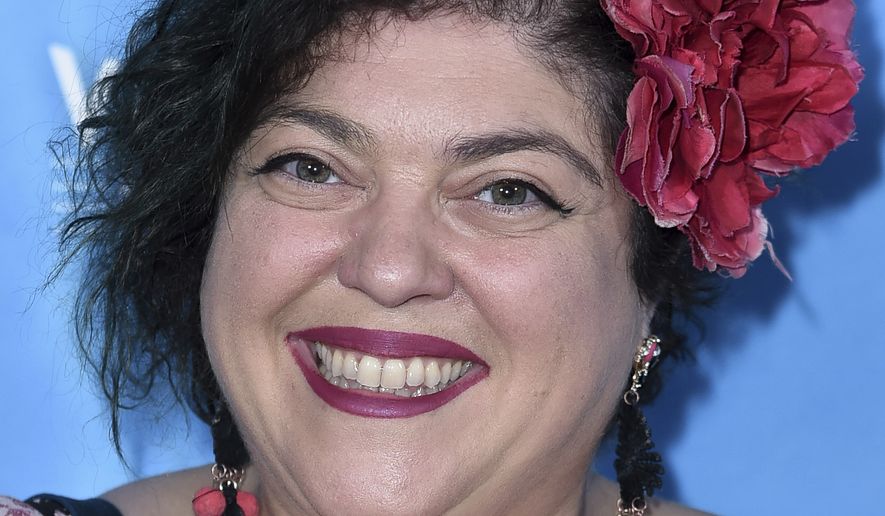OPINION:
Randa Jarrar, the California State University, Fresno professor who called now-deceased Barbara Bush a racist and who ran a vulgar and shocking commentary about the former first lady on her Twitter feed, will not be fired because of First Amendment protections, said Fresno State President Joseph Castro.
He’s right on that. The decision’s well-rooted in the Constitution. In America, idiots are allowed to be idiots and express their ugly, vicious and idiotic views; that’s the First Amendment for ya.
But Castro’s decision raises an interesting point, just the same, one that goes like this: How come some professors with tenure get First Amendment protections, but others don’t?
Apparently, free speech protections kick in for professors who tweet, “F—k outta here with your nice words” in reference Bush — like Jarrar did — but not for professors who suggest, for example, Hurricane Harvey is “karma” for Texas.
Or, for professors — with tenure, mind you — who just don’t meet with university administrators’ approval. For whatever reasons that can be drummed.
It’s an imbalance that’s puzzling, given the First Amendment hasn’t changed over the years, or from campus-to-campus.
Here’s the latest in this widely reported Fresno upset: Jarrar, an English professor at Fresno, wrote on Twitter that “Barbara Bush was a generous and smart and amazing racist who, along with her husband, raised a war criminal. F—k outta here with your nice words.”
It wasn’t long before the angry backlash began, and calls came across Twitter for Jarrar to be fired. Jarrar, in response, tweeted that she couldn’t be fired because she was tenured. University officials, led by Castro, at first seemed to side with Jarrar’s critics, saying in comments to the Fresno Bee that “we are all held accountable for our actions” and that a “professor with tenure does not have blanket protection to say and do what they wish.”
But shortly after, Castro released a letter saying the university had reviewed Jarrar’s comments with legal counsel and decided they do “not have justification to support taking any disciplinary action” against Jarrar.
Critics continue to fight for her firing; a Change.org petition passed about online calling for the “immediate termination” of Jarrar is still going strong, nearing in recent hours 60,000 of 75,000 hoped-for signatures.
It will likely to fall on deaf Fresno ears and Jarrar, despite the outcry from the public, will keep her job.
But others in her position haven’t been so lucky, and it’s this disparity that’s concerning. Either America has free speech or not. The First Amendment shouldn’t be so open to interpretation.
In August 2017, the University of Tampa fired visiting sociology professor Kenneth Storey who wrote this on Twitter, apparently referencing Hurricane Harvey and the fact that Texas voted Republican: “I dont believe in instant Karma but this kinda feels like it for Texas. Hopefully this will help them realize the GOP doesnt care about them.”
Storey apologized and explained his comments were taken out of context. But the university stood by its decision to cut ties with him.
In July 2017, BYU-Idaho political science adjunct professor and lifelong LDS Church member Ruthie Robertson was fired for posting a statement on her Facebook page that was supportive of the LGBT community. University officials warned her to retract her statement, and she refused — then lost her job.
In March 2018, two Dixie State University tenured music professors were fired for unspecified reasons — and students and outraged members of the community are still demanding to know why. One of the professors, Ken Peterson, said he and his colleague, Glen Webb, were completely shocked by the firing. Peterson shared a letter from the university with a local television station, and it stated the his conversations violated university policy — but it didn’t include specific instances of the violations, or names of those involved in the allegations.
So which is it, America — do we have freedom of speech or not?
Does the First Amendment protect Americans’ rights to speak as they wish, even if their rhetoric is ugly, offensive or stupid?
Or not?
Jarrar’s remarks no doubt show she’s a poor choice as a university professor. But that she gets First Amendment protections while others of similar position — some tenured — are booted for far less offensive and controversial remarks is unsettling.
It says those in power can decide when we have freedom of speech, and when we don’t. And in a country with a political system based on the concept that individual rights come from God, not government, that’s not really freedom of speech at all.
• Cheryl Chumley can be reached at cchumley@washingtontimes.com or on Twitter, @ckchumley.




Please read our comment policy before commenting.